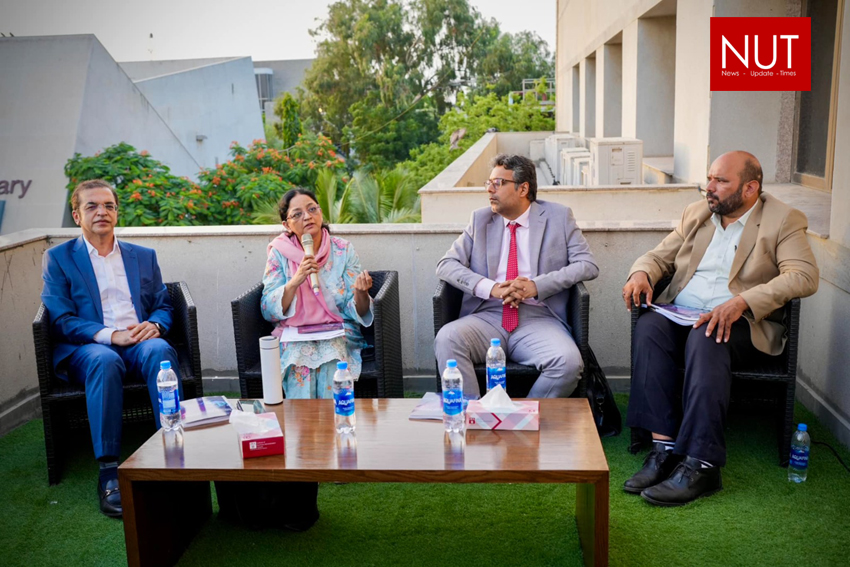Karachi (Muhammad Yasir)
IBA’s School of Economics & Social Sciences (IBA-SESS) in collaboration with Center for Business and Economic Research (IBA-CBER) launched its report ‘The State of Pakistan’s Economy 2024-25’ at the Main Campus, IBA Karachi. This year’s theme is ‘Tapping the Economic Potential: Strategies for Productivity and Growth’. The report is authored by the faculty members and students from the Department of Economics, IBA-SESS and edited by Professor, IBA-SESS, Dr. Heman Das Lohano and Professor and Director IBA-CBER, Dr. Lubna Naz.
This report analyzes key economic sectors in Pakistan, proposing strategies to unlock the country’s potential for sustainable growth and prosperity. It offers fresh perspectives on longstanding challenges, making it an essential reading for students, policymakers, and anyone interested in economic improvement. While highlighting Pakistan’s abundant resources, strategic location, and youthful population, the report also addresses significant obstacles including inflation, low growth, and energy shortages.
Renowned economists and practitioners Dr. Farooq Pasha, Dr. Shereen Narejo, and Dr. Mahmood Khalid discussed the key findings and recommendations of the report during the launch event, providing valuable insights into Pakistan’s economic landscape. The session was moderated by Dr. Lohano, who started the discussion by emphasizing that to unlock its full economic potential, Pakistan needs to adopt a comprehensive approach that addresses both short-term challenges and long-term structural issues.
Dr. Khalid stated that the tax policies designed by FBR should be consistent and have rationale. Currently the system is too complicated, especially for the wholesalers and retailers who can easily be brought into the tax net. He also opined that the cost of compliance is very high.
Dr. Narejo emphasized that creation of jobs in the economy is more important than ever before. Millions have become jobless especially after the covid. She added that estimates show that the home-based economy is around $453 billion. This should be tapped. Similarly, waste management has a huge potential, from just using banana waste, fivedifferent products can be made.
Following the discussion, the attendees engaged in a Q&A session with the panelists. The event concluded with Dean SESS, Dr. Asma Hyder, Professor SESS, Dr. Muhammad Nasir, and Visiting Faculty, Dr. Syed Jaffar Ahmed, presenting mementos to the panelists.

